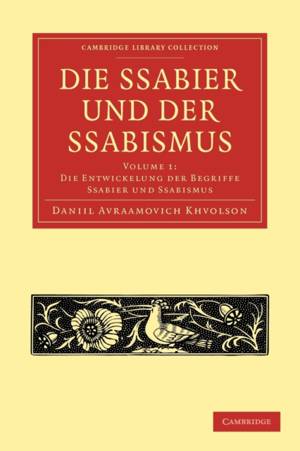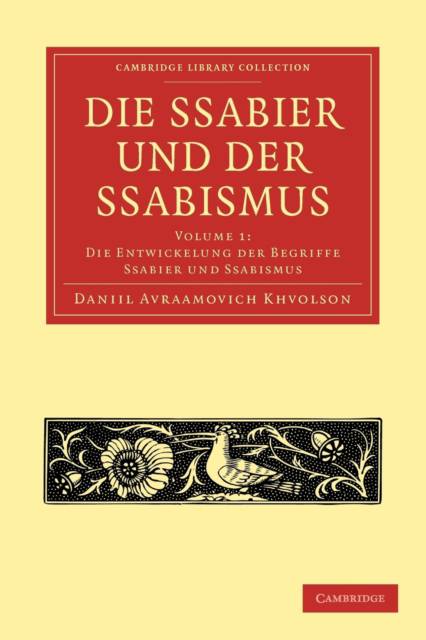
Door een staking bij bpost kan je online bestelling op dit moment iets langer onderweg zijn dan voorzien. Dringend iets nodig? Onze winkels ontvangen jou met open armen!
- Afhalen na 1 uur in een winkel met voorraad
- Gratis thuislevering in België vanaf € 30
- Ruim aanbod met 7 miljoen producten
Door een staking bij bpost kan je online bestelling op dit moment iets langer onderweg zijn dan voorzien. Dringend iets nodig? Onze winkels ontvangen jou met open armen!
- Afhalen na 1 uur in een winkel met voorraad
- Gratis thuislevering in België vanaf € 30
- Ruim aanbod met 7 miljoen producten
Zoeken
Omschrijving
The Ssabians were a Middle Eastern community (or possibly two separate communities) mentioned in the Qur'an and early Islamic writings, and categorised variously as 'people of the book' or 'heathens'. They are documented almost exclusively in Arabic sources, and this rare 1856 book, published in German in St Petersburg, remains an invaluable reference work about them, and includes substantial extracts from the early sources. The book aroused the interest of the theosophists in the 1890s owing to its portrayal of a mysterious and secretive Syriac- or Aramaic-speaking pagan sect, accomplished in astronomy and medicine, that functioned as an intellectual intermediary between the Greek and Arabic worlds. Volume 1 discusses the evidence for the Ssabians in localities such as Phrygia and Mesopotamia, including their relations with Islam, and provides biographical information about important Ssabian leaders. It then focuses on Ssabian cosmology and religion, including creation, deities, worship, and the soul.
Specificaties
Betrokkenen
- Auteur(s):
- Uitgeverij:
Inhoud
- Aantal bladzijden:
- 852
- Taal:
- Duits
- Reeks:
Eigenschappen
- Productcode (EAN):
- 9781108027588
- Verschijningsdatum:
- 19/05/2011
- Uitvoering:
- Paperback
- Formaat:
- Trade paperback (VS)
- Afmetingen:
- 152 mm x 229 mm
- Gewicht:
- 1224 g

Alleen bij Standaard Boekhandel
+ 283 punten op je klantenkaart van Standaard Boekhandel
Beoordelingen
We publiceren alleen reviews die voldoen aan de voorwaarden voor reviews. Bekijk onze voorwaarden voor reviews.











